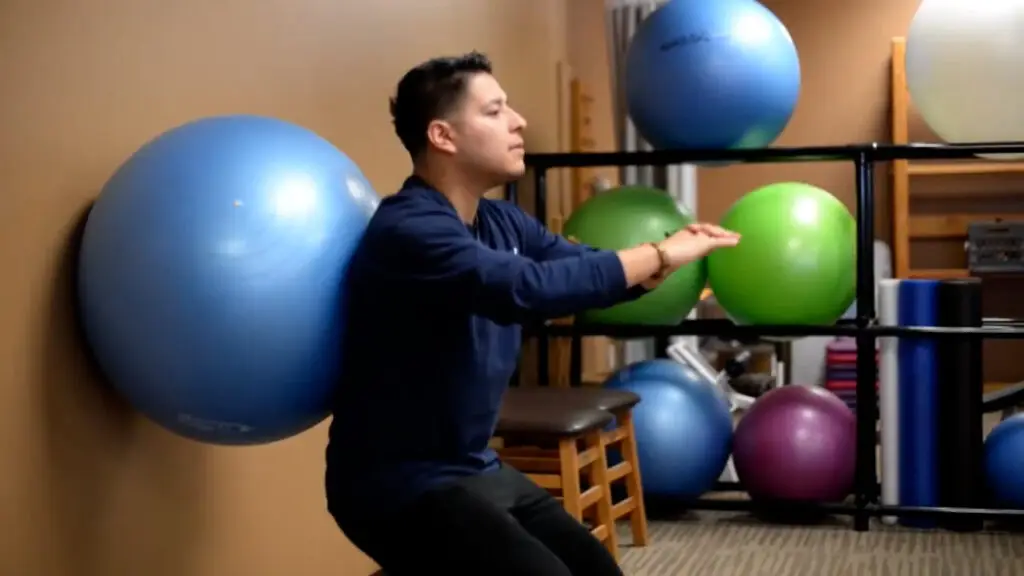Non Surgical Back Pain Treatment Options
how we can help
Non Surgical Treatments For Back Pain Overview
An estimated 75-85% of Americans experience some form of back pain during their lifetime. Although low back pain can be debilitating and painful, in approximately 90% of cases, it is temporary, and the pain improves without surgery, according to the American Association of Neurological Surgeons, or AANS. However, about 50% of patients who suffer from episodes of low back pain will have recurrent episodes within one year. The AANS went on to say that low back pain is considered chronic when it persists for more than 12 weeks.
Although low back pain is a common occurrence, further evaluation from a medical professional is necessary if you experience persistent or worsening back pain, neurologic symptoms that include numbness, weakness, or tingling, and /or changes in bowel or bladder function which would require immediate medical attention.
Once a patient is evaluated for treatment, a program of conservative care is the first therapeutic intervention offered. These pain treatments include a variety of non-surgical options. If conservative care fails to help, the spine specialists at the Texas Back Institute regard surgical intervention as the last option.
Table of Contents
Patients Ask:
What does “conservative care” mean?
Texas Back Institute Responds:
At the Texas Back Institute, the standard of care is to combine conservative, or nonsurgical, treatment options like physical therapy, pain management with medication, and chiropractic care to reduce and relieve pain and maximize patient outcomes. These options are integrated into a comprehensive pain management plan, which may include procedures such as epidural steroid injections and nerve blocks, to provide a holistic approach to managing back pain.
The Efficacy of Conservative Care
Patients labor under the misconception that surgery is the only solution for back pain, when in many cases the condition can be managed without the need for surgical intervention, particularly when diagnosis and treatment are sought out at the onset of symptoms.
Link to blog article: https://texasback.com/spine-health-tip-how-to-deal-with-acute-and-chronic-back-pain/.
Timely conservative care interventions may reduce the likelihood of surgery.
Non surgical treatment options
These are considered the gold standard of conservative care:
Physical Therapy:
- Physical Therapy (PT) can help patients with back pain and other spinal problems by improving their flexibility, reducing pain, and building and strengthening supporting muscles. A physical therapist will design a program to specifically target and address the problems based on the individual capabilities.
Pain Management:
- A pain management specialist will develop a therapy plan that will help patients to reduce, relieve, and manage pain so that they can return to their everyday activities. Cervical and lumber epidural steroid injections are frequently prescribed as part of a nonsurgical back pain treatment plan. Injections like selective nerve root block and facet joint injections can provide targeted pain-blocking results specific to the location of the problem.
Medication & Muscle relaxants:
- Medications are frequently part of each treatment regimen for acute and chronic pain and may be combined with physical therapy and/or chiropractic care. Your physician may prescribe one or more types of medications to treat a variety of conditions including acute pain, chronic pain, herniated disc, disc degeneration, whiplash, facet and sacroiliac joint pain, stenosis, and spondylolisthesis.
- Muscle relaxants are medications that help alleviate muscle spasms and tightness by acting as depressants of the central nervous system. They are effective for managing acute pain but do not play a role in chronic pain treatment. Muscle relaxants should be considered as part of a broader pharmacologic approach to pain management.
Chiropractic Care:
- According to the NIH, spinal manipulation is a technique wherein practitioners use their hands or a device to apply a controlled thrust to a joint of the spine. The amount of force can vary, but the thrust moves the joint more than it would on its own. Spinal manipulation is one nonsurgical approach that can be used to treat low-back pain. It may lead to improvement in pain reduction and functionality. Functionality refers to how low-back pain affects aspects of people’s lives, like walking, standing, sleeping, job performance, and completion of household tasks.
Soft Tissue Mobilization:
- Soft Tissue Mobilization, or STM, is a manual therapy treatment where the PT applies a variety of pressures and stretches to the muscles and fascia. STM primarily targets the weblike fascia layer, aiming to ease pain and improve muscle force generation.
Massage Therapy:
- Massage therapy is a widely recognized treatment for lower back pain. It can effectively alleviate muscle spasms, which are common symptoms associated with lower back pain and can significantly hinder daily activities and overall quality of life. Massage therapy helps improve blood circulation, reduce muscle tension, and promote relaxation.
Psychological Support:
- According to the American Psychological Association, chronic pain is complex. “People often think of pain as a purely physical sensation. However, pain has biological, psychological, and emotional factors. Furthermore, chronic pain can cause feelings such as anger, hopelessness, sadness, and anxiety. To treat pain effectively, you must address the physical, emotional, and psychological aspects.” Patients dealing with chronic pain may have treatment plans that include relaxation techniques, changing old beliefs about pain, building new coping skills, and addressing any underlying anxiety or depression that may accompany the pain. In addition, support is provided for making lifestyle changes that will impact and improve the condition, like weight loss or smoking cessation.

Patients Ask:
How is STM different from massage therapy?
Texas Back Institute Responds: STM is a manual therapy procedure performed by a physical therapist or chiropractor to breakdown scar tissue and release fascial restrictions in the muscles and connective tissues. Massage therapy uses hand techniques like effleurage or kneading to manipulate soft tissue, relax muscles, reduce tension, and improve circulation.

Home Remedies
When patients ask what they can do to alleviate their back pain, there are several home remedies that have proven effective. Leg pain, often associated with spinal issues, can also be managed with these remedies.
For example, a good night’s sleep is essential to healing. Try sleeping on your back with a pillow positioned under the knees to maintain the curve of the back. Position a pillow under the neck to ensure it aligns with the chest and back. Another sleeping position that is effective for alleviating back pain is to sleep on the side in a fetal position and include a pillow between the knees for added support.
Other home remedies include:
- Home Exercise Programs: Gradually implement a home exercise program that includes stretching exercises like the hip flexor stretch, hip abductor stretch, and hamstring stretches. Exercises that strengthen the core and the glutes have proven particularly effective in helping to ease low back pain. Back pain exercises that increase your flexibility, strength, and balance are a natural progression to giving you an independent life and may also provide relief from associated muscle pain. However, strength and flexibility gains made during these activities may be quickly lost if the exercises are not maintained.
- Hot and Cold Therapy: Considered effective for managing back pain, hot and cold therapy consists of applying an ice pack to the painful area to reduce inflammation. Never leave ice on for more than 20 minutes. Heat therapy consists of using a heating pad, a warm moist towel, or a hot shower to relax tension and promote circulation. Some people say ice works best, some prefer heat, and others use a combination of both.
Patients Ask:
Does smoking impact your spine or cause back pain?
Texas Back Institute Responds: Smoking has a significant impact on spine health. Nicotine and other harmful chemicals in cigarettes can damage the intervertebral discs, depriving them of essential nutrients and causing damage at a cellular level. Prolonged smoking can contribute to a condition called degenerative disc disease by restricting blood flow and constricting blood vessels. Additionally, smoking interferes with bone metabolism, increasing the risk of spinal fractures. Patients who continue to smoke after spinal fusion surgery may face greater challenges when healing.
Home Remedies That Address Specific Spinal Conditions
Patients often ask the spine specialists at Texas Back Institute about effective home remedies for specific spine conditions that might help them to get back on the road to recovery.
Here are some common spine conditions and a list of home remedies that offer some relief.
- Degenerative Disc Disease: Engage in low-impact aerobic exercise like walking, yoga, or swimming. Maintain a healthy weight to reduce stress on the back.
- Ankylosing Spondylitis: Practice regular low-impact exercises to maintain flexibility. Heat therapy and warm baths can provide relief.
- Scoliosis: Strengthen core muscles. Try Pilates or yoga. Be aware of proper posture and use an ergonomic chair.
- Spondylolisthesis: Avoid heavy lifting and high impact activities. Strengthen abdominal and back muscles.
- Herniated Disks: Rest and avoid heavy lifting. Ice packs combined with gentle stretching may help ease pain.
- Spinal Stenosis: Gentle aerobic exercise like walking and swimming are beneficial. Staying active to maintain flexibility and a healthy weight are effective in reducing symptoms. These exercises can help alleviate pressure on the spinal cord by expanding the space in the spinal canal.
Patients Ask:
Is there anything I can do now to prevent back problems in the future?
Texas Back Institute Responds:
There are several preventative strategies that include paying attention to proper posture, staying hydrated, quitting smoking, and staying active. When lifting heavy objects, bend your knees and use your leg muscles to protect your back. Strengthen core muscles, back muscles, and get a good night’s sleep. Try to maintain a healthy weight to avoid straining your back. Small lifestyle changes like these can have a significant impact on keeping your back in good health.
The spine specialists at Texas Back Institute know that back pain should always be treated, whether at home or by a spine specialist. If you are ready to get back on the road to recovery, make an appointment today.
Learn more
Frequently Asked Questions
At the Texas Back Institute, the standard of care is to combine conservative, or nonsurgical, treatment options like physical therapy, pain management with medication, and chiropractic care to reduce and relieve pain and maximize patient outcomes. These options are integrated into a comprehensive pain management plan, which may include procedures such as epidural steroid injections and nerve blocks, to provide a holistic approach to managing back pain.
STM is a manual therapy procedure performed by a physical therapist or chiropractor to breakdown scar tissue and release fascial restrictions in the muscles and connective tissues. Massage therapy uses hand techniques like effleurage or kneading to manipulate soft tissue, relax muscles, reduce tension, and improve circulation.
Smoking has a significant impact on spine health. Nicotine and other harmful chemicals in cigarettes can damage the intervertebral discs, depriving them of essential nutrients and causing damage at a cellular level. Prolonged smoking can contribute to a condition called degenerative disc disease by restricting blood flow and constricting blood vessels. Additionally, smoking interferes with bone metabolism, increasing the risk of spinal fractures. Patients who continue to smoke after spinal fusion surgery may face greater challenges when healing.
There are several preventative strategies that include paying attention to proper posture, staying hydrated, quitting smoking, and staying active. When lifting heavy objects, bend your knees and use your leg muscles to protect your back. Strengthen core muscles, back muscles, and get a good night’s sleep. Try to maintain a healthy weight to avoid straining your back. Small lifestyle changes like these can have a significant impact on keeping your back in good health.
The spine specialists at Texas Back Institute know that back pain should always be treated, whether at home or by a spine specialist. If you are ready to get back on the road to recovery, make an appointment today.
Locations


